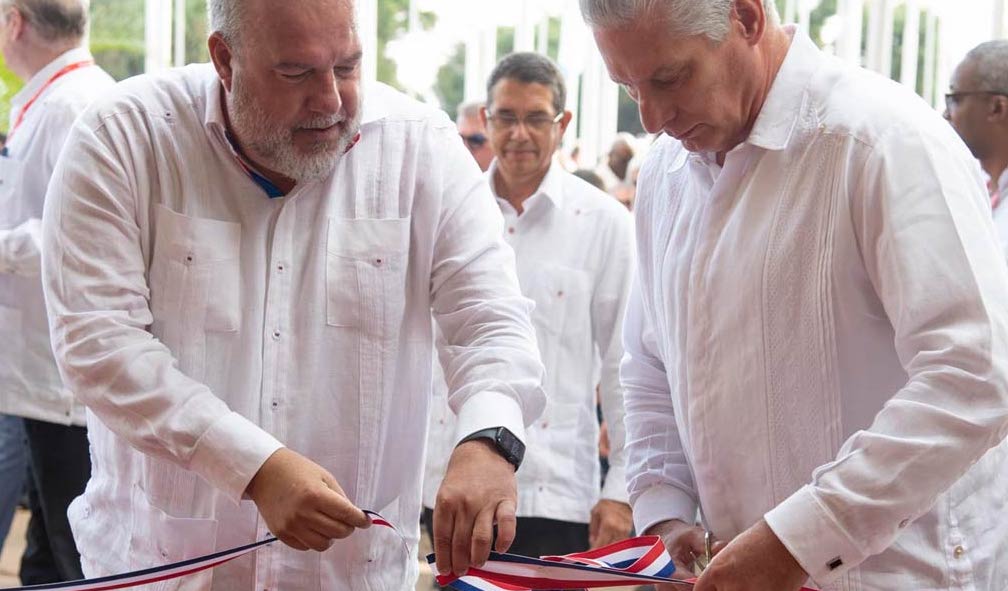Remarkable. When the Cuban regime recognized on Monday that it needed to amend its original growth forecast for 2022, the authority charged with announcing the news was the head of the Chamber of Commerce, Antonio Carricarte. None of the ministries, or the Central Bank, have stepped forward to explain and acknowledge the failure of the plan, which had initially called for GDP growth of 4%. Finally, there was no choice but to acknowledge that the figure was unattainable, so it was halved, in line with the forecast offered by ECLAC in a recent report.
The fact that it was the director of the Chamber of Commerce who was tapped to give the bad news has two readings.
First, it could be that no one in the political apparatus wanted to pay the price for an errant calculation by bureaucrats whose forecasts are never realized, year after year. Politics is, thus, excluded from this figure, which is very negative, because it confirms that the economy is in frankly bad shape, and that the surge in the first quarter of 2022, with GDP growth of 10.9%, followed by 1.7% in the second quarter, was unsustainable, hence the reduction.
Secondly, the fact that it was the Chamber of Commerce, a business entity, that came out to break the bad news means that the regime has decided to transfer the responsibility to the private sector and to blame the failure of the economic plan on companies, state and non-state; the self-employed, cooperatives, SMBs and others. Politics is obscured, and the business sector is saddled with the bad results.
This is a new development, which may indicate a certain weariness among the leadership. It has been three years, since the second half of 2019, of recession and weak growth, and the political toll taken by this tailspin is important. It would hardly be surprising if this change in spokesperson had to do with a crisis in the government, which could happen at any time.
That the plan's forecast has been halved creates serious economic and budgetary complications in a centrally planned economy like Cuba's. All the initial calculations and metrics of the state budget and economic activity have to be revised and adapted to the new figures, and some, or almost all, the programs will have to be modified as well. Or even eliminated.
In any case, even the downgraded growth forecast for the Cuban economy of 2% may be too optimistic taking into account that the third quarter has been lackluster and that in the fourth quarter tourism will probably flounder as the international recession unfolds. Meanwhile, the regime cannot artificially stimulate growth by spending more on the budgeted sector. The vicious cycle will not allow it. The Cuban economy will have to wait until 2023, or even 2024, to recover the levels of 2019, lost as a result of the Covid-19 pandemic.
Thus, the Communist regime, in the face of the debacle augured by this halving of its projection, has made the political decision that it deems most expedient, aligning with the ECLAC forecast, issued in last October's report.
The figure, moreover, was announced at the inauguration of the International Fair of Havana (FIHAV), which put a real damper on the event, where Díaz-Canel and Marrero spoke of the "Cuban market" and Cuba as an "island of opportunities for foreign capital." The fact that the director of the Chamber of Commerce was the one chosen to give the 2% estimate, half of what had been slated, has much to do with the terrible year in the Tourism sector, which has remained at 70% of the level it reached in 2019, while the Dominican Republic, for example, has already far exceeded its figure for that year. The director of the Chamber of Commerce strove to transmit optimism: "these are difficult times, but we hope to boost the figure."
But the truth is that, at this point of the year, a comeback is a tall order; basically, because all the eggs are placed in the basket of Tourism, the thermometer of the Cuban economy, which will decline in the coming months due to the expansion of a global economic crisis that will hit the markets from which tourists come. Cuba's communists are already preparing their excuses to explain this decline, which they will blame on the effects of the Covid-19 pandemic and on US sanctions, but he reality is much more serious: they have not been able to bolster other activities, such as agriculture, sugar, construction, housing or manufacturing, which remain inert, hamstrung by the real internal blockade/embargo that cripples the economy.
With reference to both Covid-19 and the US embargo, the leaders are not being forthright, whether compared with the data of other countries in the area, or the profiles of the travellers who arrive on the island. From the 2.5 million in the 2022 plan, the figure was reduced to 1.7 million, but there are doubts that this number will be achieved. Meanwhile, revenue is plummeting. International hotel companies have shown signs of fatigue, and the adjudication procedures used by the regime for the southern keys have caused discontent. No one is willing to endure five years with no profits.
It is interesting to note that the reduction in GDP growth from 4% to 2% surprised no one; citizens, companies, and international analysts have all borne witness to Cuba's daily blackouts, massive emigration to the United States, scarce products and high inflation. Cubans are beginning not only to show dissatisfaction with the situation, but also a willingness to protest, openly. When the economy deteriorates, society gets moving. A crisis like this cannot go on forever. It's unsustainable. Cubans are seeing that the glass is about to overflow, and the last drop can fall at any time.
